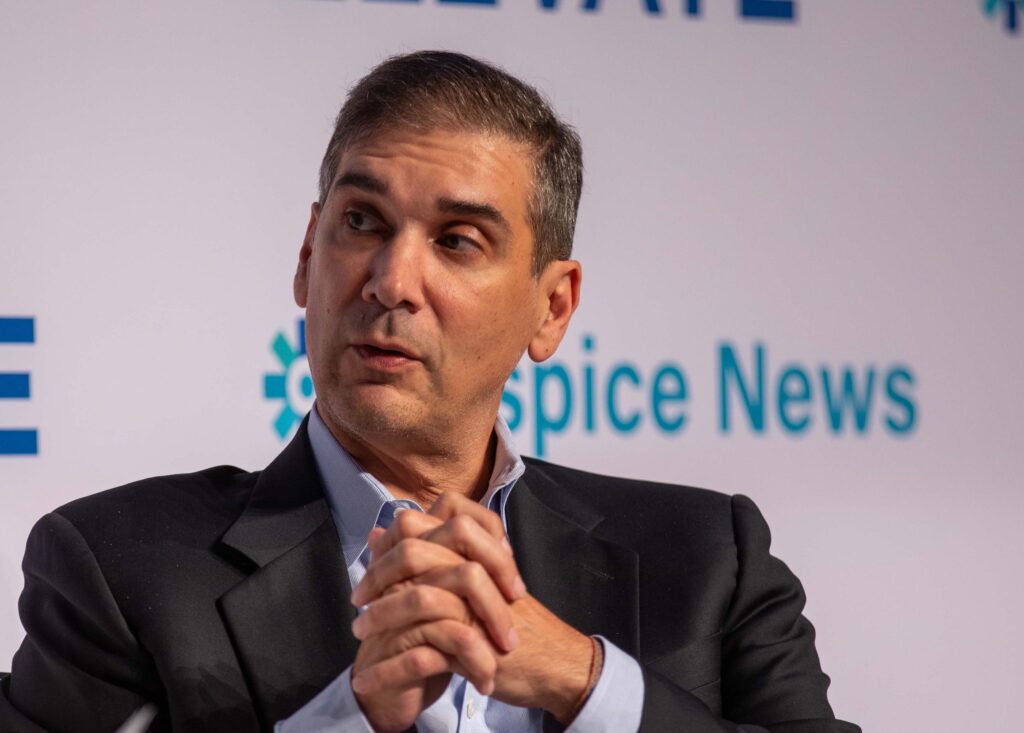Since his company launched in 2020, founder and CEO Alfonso Montiel had days when he feared Texas-based Silverstone Hospice would not survive. Nearly three years later, Silverstone has grown 700%, with no signs of slowing down.
Silverstone came on the scene after Montiel’s purchase and rebranding of Comfort Care Hospice in the Dallas-Fort Worth region. While establishing a company is never easy, doing so during a pandemic came with a series of unique challenges.
Silverstone not only persevered, but achieved substantial growth in patient census, geography and the scope of its services. The company has built a palliative care service and has plans in the works to further expand its continuum of care.
“It was difficult not to get jaded. Billing was very challenging, human resources are very challenging, and particularly how to get referrals from hospitals and facilities that were on lockdown,” Montiel said at the Hospice News ELEVATE conference in Chicago. “It was very tough. We literally had to develop algorithms to use on social media so that we could catch people before they knew they needed hospice.”
Montiel came to hospice through a circuitous route.
His career began in the strategic planning field, and after a few years, he moved into the private equity space. Montiel established a $150 million private equity hedge fund, worked in strategy development for Fortune 500 companies and was CEO of the charitable organization Lemon Tree Trust.
There, he found success, but not fulfillment, Montiel told Hospice News at ELEVATE. Seeking change, Montiel journeyed to Iraq to work with refugees.
Upon his return to the United States, he caught his first glimpse of hospice when a family member neared the end of life. Inspired by what he saw, Montiel decided to become a hospice volunteer. Here he found his calling, and he leveraged his prior experience in law and finance to launch Silverstone.
“For a year, I held the hands of people who were dying alone,” Montiel told Hospice News. “The only thing I’m good at is launching new businesses, so I bought a hospice company. It was crazy. There are many other ways to make money. There are many other ways to live your life. This industry is only bearable if there’s a higher calling.”
The launch required a large investment of personal funds, as well as a need to raise money from a range of other backers. Many of these were Montiel’s personal connections. The fundraising process took only two weeks.
Silverstone was fortunate to have raised a larger sum than it actually needed to start the business, which gave it a small cushion to ease some of the pandemic headwinds, Montiel said at the conference.
Nevertheless, Montiel had a learning curve as Silverstone got off the ground. He had little knowledge of clinical care or the intricacies of hospice billing. He also faced the labor shortage and the need to grow a referral network from the ground up.
More than once, he had to dip into personal savings to keep the company afloat or to make payroll.
During the pandemic, nurses had become more scarce than ever before. Some candidates he interviewed asked for as much as $5,000 in weekly wages or new vehicles if they signed on for the job, Montiel said.
But he also heard from nurses who were frustrated that they were limited to 30 minutes per patient with their current employers, or those who had overwhelming caseloads that reduced the attention they could give to each family.
From these conversations, it became clear to Montiel that having the right teams in place would be pivotal to success.
“We got really good at hiring good people, but we weren’t ready to fire bad people,” Montiel said. “When we finally did, we then moved to a point where we were on the verge of service failures because we had more patients than we can serve.”
The company also had to maneuver through another industry-wide pain point; patients were coming to hospice too late, with only a few days to live.
One of Silverstone’s solutions was to launch its palliative care service. While the hospice does not bill patients for those services, palliative care gives them earlier access to those individuals and families. This allows Silverstone clinicians to engage them in goals-of-care conversations sooner in their disease process, allowing for earlier hospice admissions when it becomes appropriate.
Silverstone further realized that they needed processes to ensure they responded quickly to referrals. They set a goal of achieving a five-minute turnaround time and focused on building a back office infrastructure with enough staff on the phones to take the hundreds of calls that were coming in every month, according to Montiel.
The company also oriented its marketing around education, both for residents of the communities they serve and for clinicians working in other settings.
“We should call [marketing teams] ‘patient advocates’ as well as ‘marketers,’” Montiel said. “Today, on average, one salesperson enrolls 20 to 30 patients a month, which is unheard of, because of the way we present ourselves is as an educational resource. We are caregivers, but before we can do that we have to be educators.”



